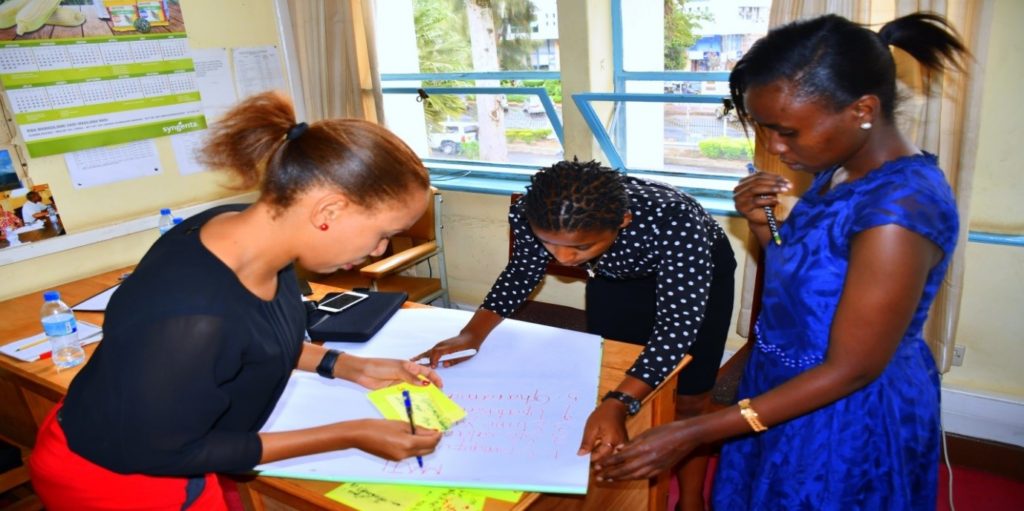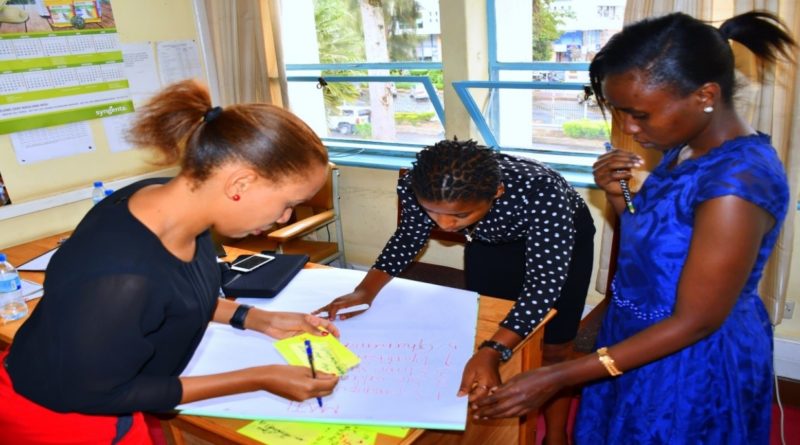Participants of the Arena in Arusha, Tanzania, identified a multitude of interconnected problems
Arusha is one of the faster-growing cities in Tanzania. The urbanization process is causing multiple interconnected problems. The first arena meeting organized as part of the T-Group Arusha Transition Management process was held by the local transition team with the aim to identify the existing community problems in Arusha. Below we briefly describe the findings from the first Arena meeting.
Participants explained how water supplied by Arusha Urban Water Supply and Sanitation Authority (AUWSSA) is not sufficient to meet the needs. The majority of the population therefore has to obtain water from alternative sources, such as springs and shallow wells. Most of this shallow water is, however, contaminated. There are also water selling points, but generally speaking, that water is not affordable for low income inhabitants.
The urbanization process has induced major effects on the environment. Deforestation, waste disposed off irregularly, building of toilets in unsuitable ways and other practices contributed to the contamination of the environment and its natural resources.
As one participant stated during the meeting: ‘lack of education is the cause of all the existing problems’. People living in Arusha have limited access to education. Additionally there are limited or no sensitization activities around issues like water use, building and maintenance of sanitation infrastructures and sustainable waste management.
Other problems regarding infrastructure and city planning mentioned were roads and insufficient city transportation services to meet mobility needs. Also, Arusha lacks open and green recreation areas, which are essential for the improvement of citizens’ wellbeing as well as for contributing to climate change mitigation and adaptation.
Furthermore, Arusha is facing the challenge of high unemployment rates contributing to increased poverty. In addition, health services are very expensive and the most marginalized people cannot afford accessing them. At community level, essential community health education (e.g. food safety, gender equality, family plan education, etc.) is lacking.
Participants claimed that the local leadership system has a low capacity and capability and corruption is creating problems of accessibility and maintenance of services in the city.
Why do problems persist?
Water, environmental and education related problems were ranked by the arena meeting’ participants as the main challenges in Arusha. But why do these problems persist in the community? According to the Arena, the poor economy, unemployment and low access to services are strongly related. Poor people cannot afford to access services such as education, water, sanitation and health services. Clean water is too expensive for the poor that suffers water scarcity or use contaminated water sources.
Low awareness of environmental protection aspects causes the continuous persistence of environmental related problems. People are not aware of the importance of protecting natural resources and they maintain practices and behaviors contributing to environmental degradation such as contaminating water and soil through unsuitable sanitation practices, through improper waste disposal or deforestation. All these practices contribute to increasing other risks, such as flooding and health related problems.

Participants during the first arena meeting identifying the main problems in Arusha

